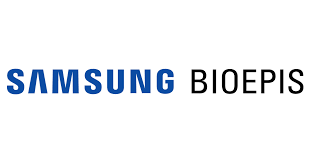
- Bone Health
- Immunology
- Hematology
- Respiratory
- Dermatology
- Diabetes
- Gastroenterology
- Neurology
- Oncology
- Ophthalmology
- Rare Disease
- Rheumatology
Ranibizumab Biosimilar (Byooviz) Gains EU Marketing Authorization
Byooviz, developed by Samsung Bioepis, will be distributed by Biogen in the European Union, where it becomes the first ranibizumab biosimilar. An application is under review with the FDA.
The European Union has approved its first ranibizumab biosimilar (Byooviz, SB11), referencing Lucentis. The approval was confirmed by the European Commission, which is the body in the European Union that has the authority to grant EU-wide marketing authorization, based on recommendations by the European Medicines Agency (EMA).
Byooviz was developed by Samsung Bioepis and will be commercialized in the European Union, the United States, and certain other markets by Biogen.
Byooviz was approved for neovascular (wet) age-related macular degeneration, diabetic macular oedema, proliferative diabetic retinopathy, macular oedema secondary to retinal vein occlusion, and choroidal neovascularization.
The EU authorization follows a June 24, 2021, recommendation for approval for the above-listed indications from the EMA’s Committee for Medicinal Products for Human Use (CHMP). CHMP conducts initial assessments of marketing authorization applications and changes to existing authorizations, which may include modifications, suspensions, or withdrawals of marketing authorization.
CHMP’s assessments for marketing authorization are based on scientific evaluation of data, and the committee is tasked with ensuring that the proposed medicine meets quality, safety, and efficacy standards. It also ensures that the medicine has an appropriate risk/benefit profile.
Byooviz Formulation
Byooviz is a monoclonal antibody that inhibits vascular endothelial growth factor A and thereby retards tumor-supporting angiogenesis. The product will be available in the form of a 10-mg/mL injectable solution. “Data show that Byooviz has comparable quality, safety, and efficacy to Lucentis,” CHMP said.
Wet AMD is a leading cause of blindness in individuals 50 years and older. Results of a phase 3 efficacy and safety study (N = 705) for Byooviz published in January 2021 showed that the biosimilar demonstrated equivalence to Lucentis in best corrected visual acuity. The incidence of treatment-emergent adverse events (TEAEs), including serious TEAEs, was similar between patient cohorts. Immunogenicity was also comparable.
Lucentis is a blockbuster drug that reached $1.93 billion in 2020 sales. Byooviz has been under review for marketing approval by the FDA since November 2020.
Samsung Bioepis also is developing an aflibercept biosimilar candidate (SB15), a vascular endothelial growth factor inhibitor that would be used in the treatment of macular degeneration and metastatic colorectal cancer. Biogen would partner with Samsung Bioepis in the commercialization of this product.
The arrival of ophthalmology biosimilars is a long-awaited event. In a recent opinion column for The Center for Biosimilars®, Sonia T. Oskouei, PharmD, BCMAS, DPLA, discussed Cardinal Health research into ophthalmology biosimilar options. Oskouei is vice president of biosimilars for Cardinal.
Bevacizumab for Ophthalmology
The originator bevacizumab (Avastin) has been used for ophthalmic disease treatment but there is controversy over the extrapolation of biosimilars in this context. Avastin has never received an FDA approval for use in this regard, but the weight of clinical evidence in support of originator bevacizumab has given confidence to eye disease specialists that they are on firm ground in employing Avastin in the eye disease spectrum. However, that cannot be said for bevacizumab biosimilars, the American Academy of Ophthalmology (AAO) has stated. The payer community is divided over whether bevacizumab biosimilars can be used in eye disease, with some authorizing the use and others not.
In a recent interview with The Center for Biosimilars®, George Williams, MD, clinical spokesperson for the AAO, explained the bevacizumab issues from the standpoint of his organization. He said a shortage of Avastin caused by a manufacturing issue was what prompted some payers to begin authorizing bevacizumab biosimilars for ophthalmic conditions.
Another issue that concerns ophthalmologists is that bevacizumab, not being packaged specifically for eye disease treatment (intravitreal injection), must be sent to compounding pharmacies for repackaging into acceptable dosage form. This additional processing is concerning because the extra step introduces uncertainties about product purity. Further, different manufacturing processes for bevacizumab biosimilars also may change the way patients respond to the treatment, he said.
Newsletter
Where clinical, regulatory, and economic perspectives converge—sign up for Center for Biosimilars® emails to get expert insights on emerging treatment paradigms, biosimilar policy, and real-world outcomes that shape patient care.
259 Prospect Plains Rd, Bldg H,
Cranbury, NJ 08512
All rights reserved.
